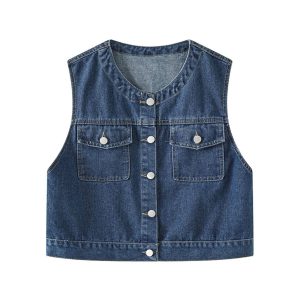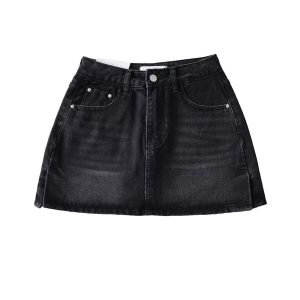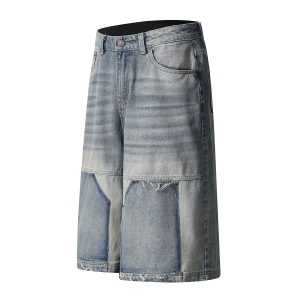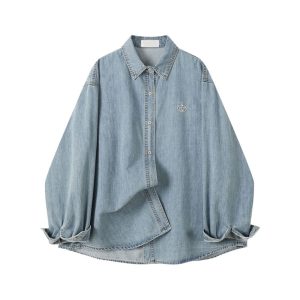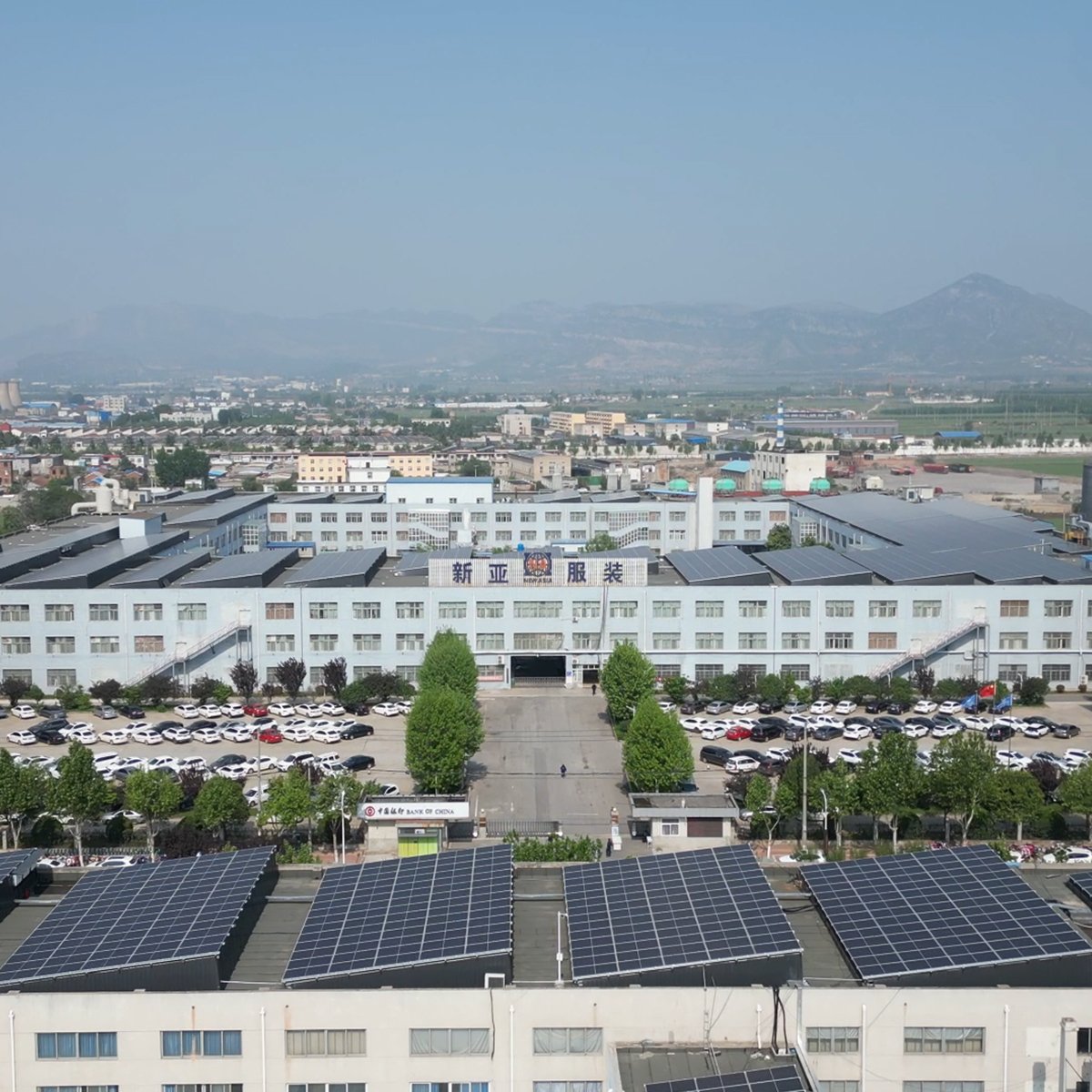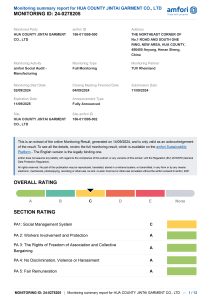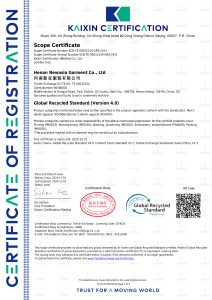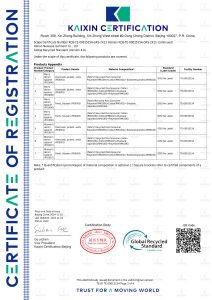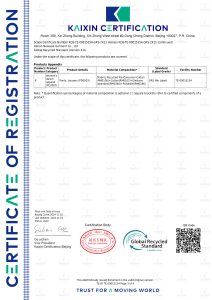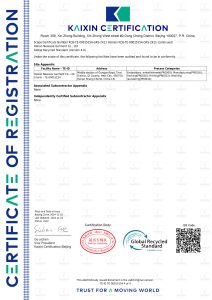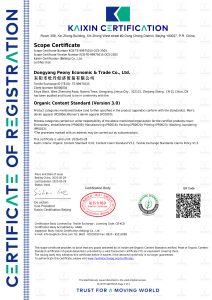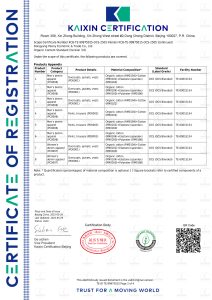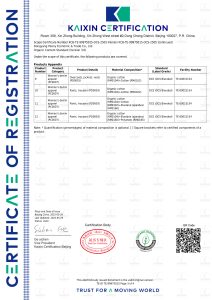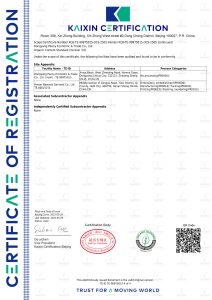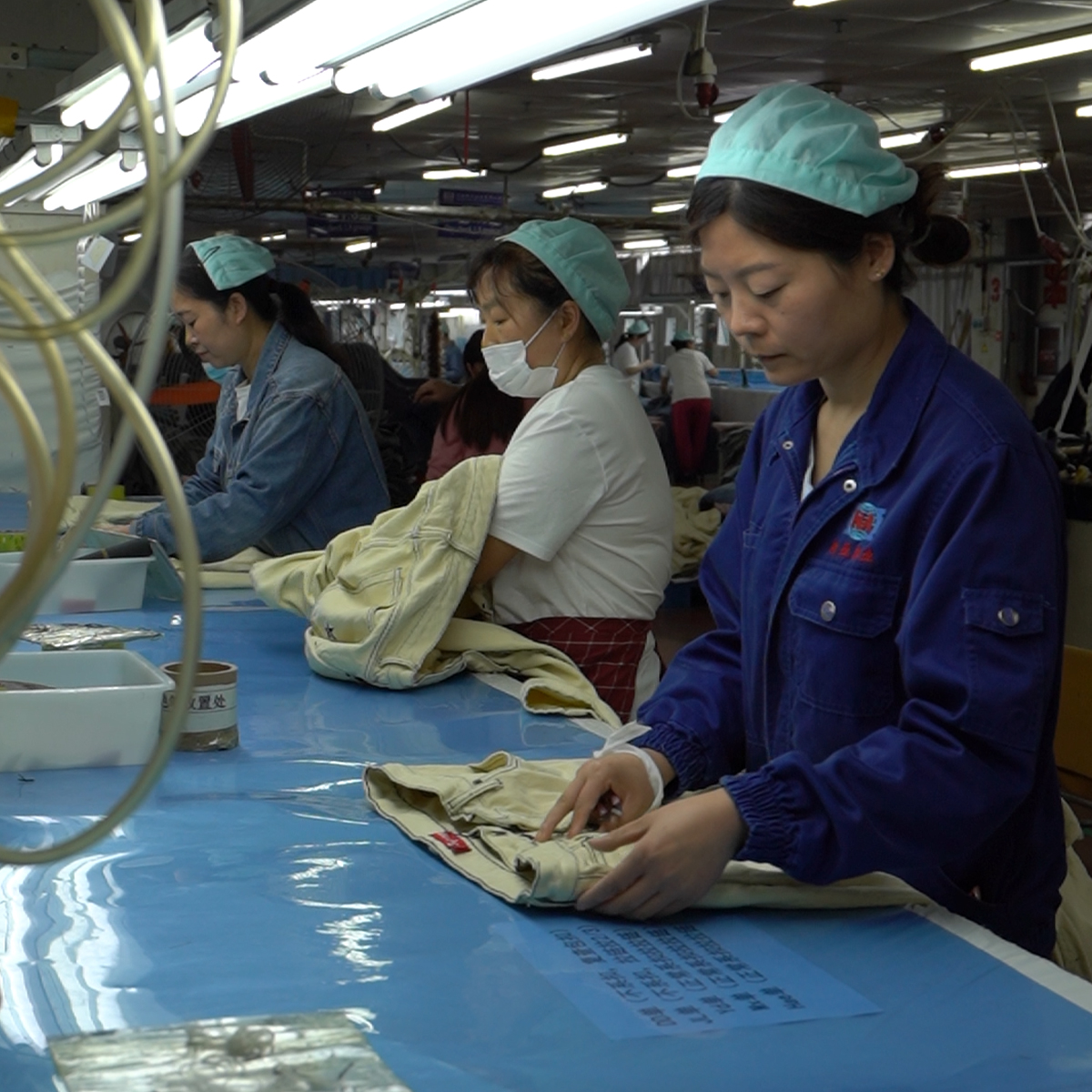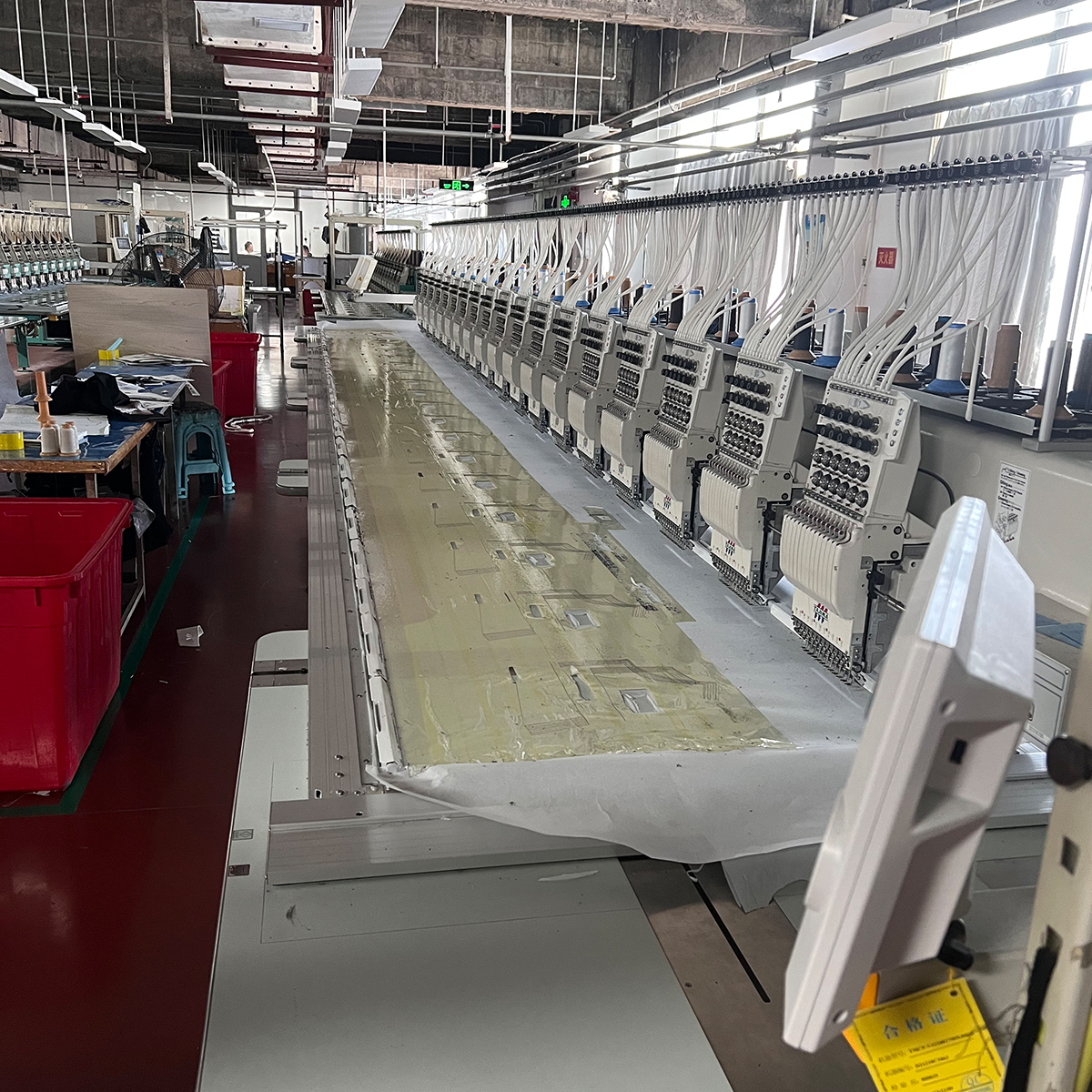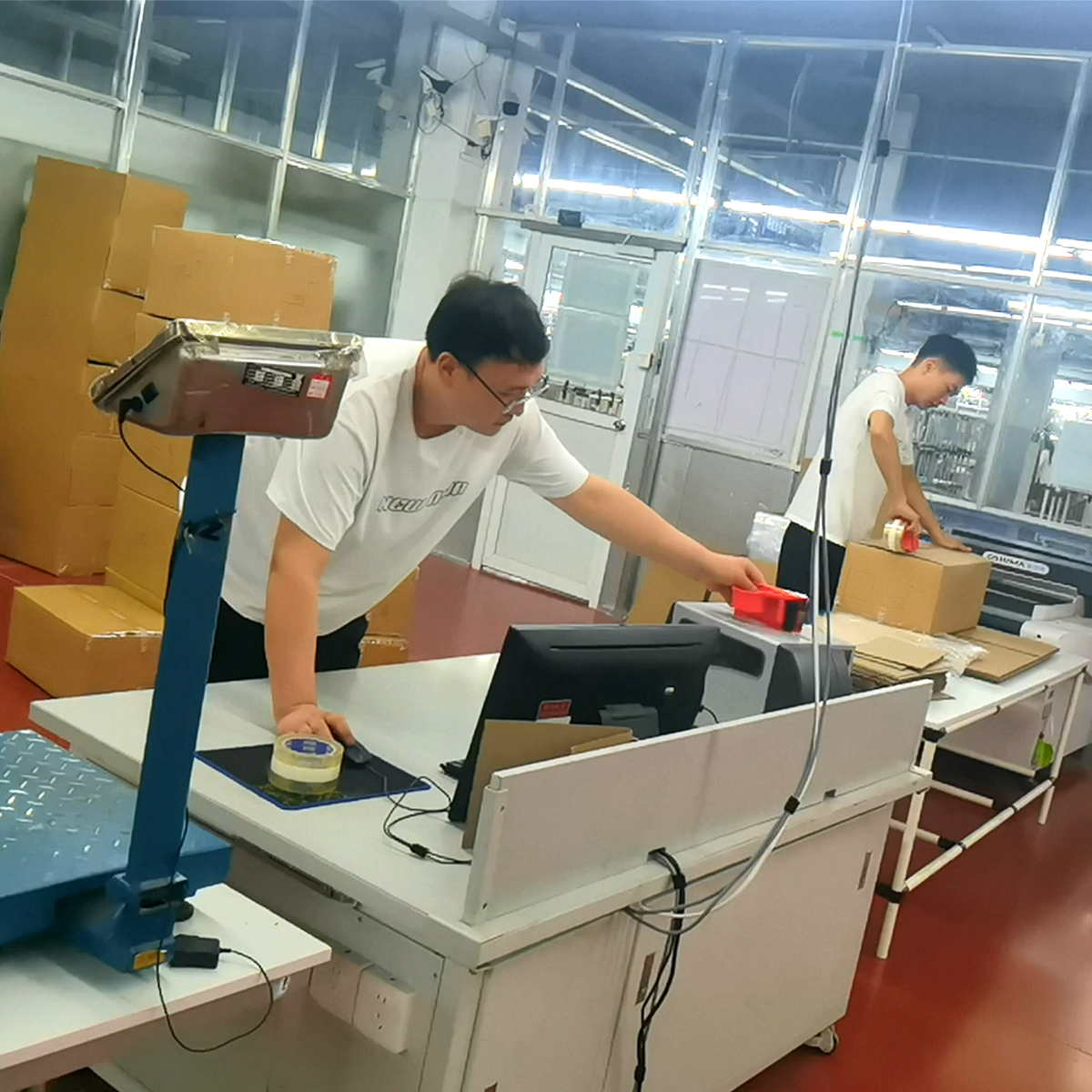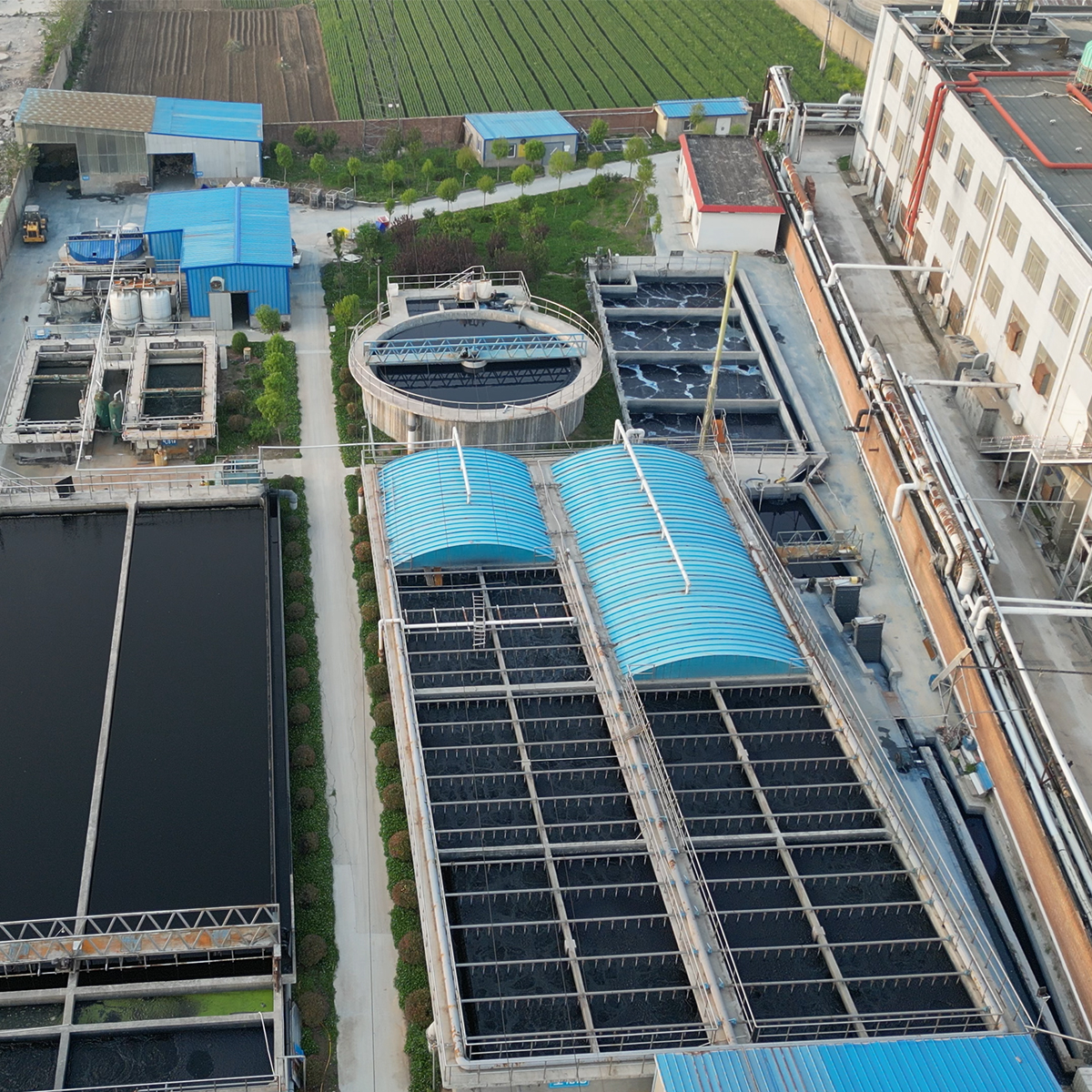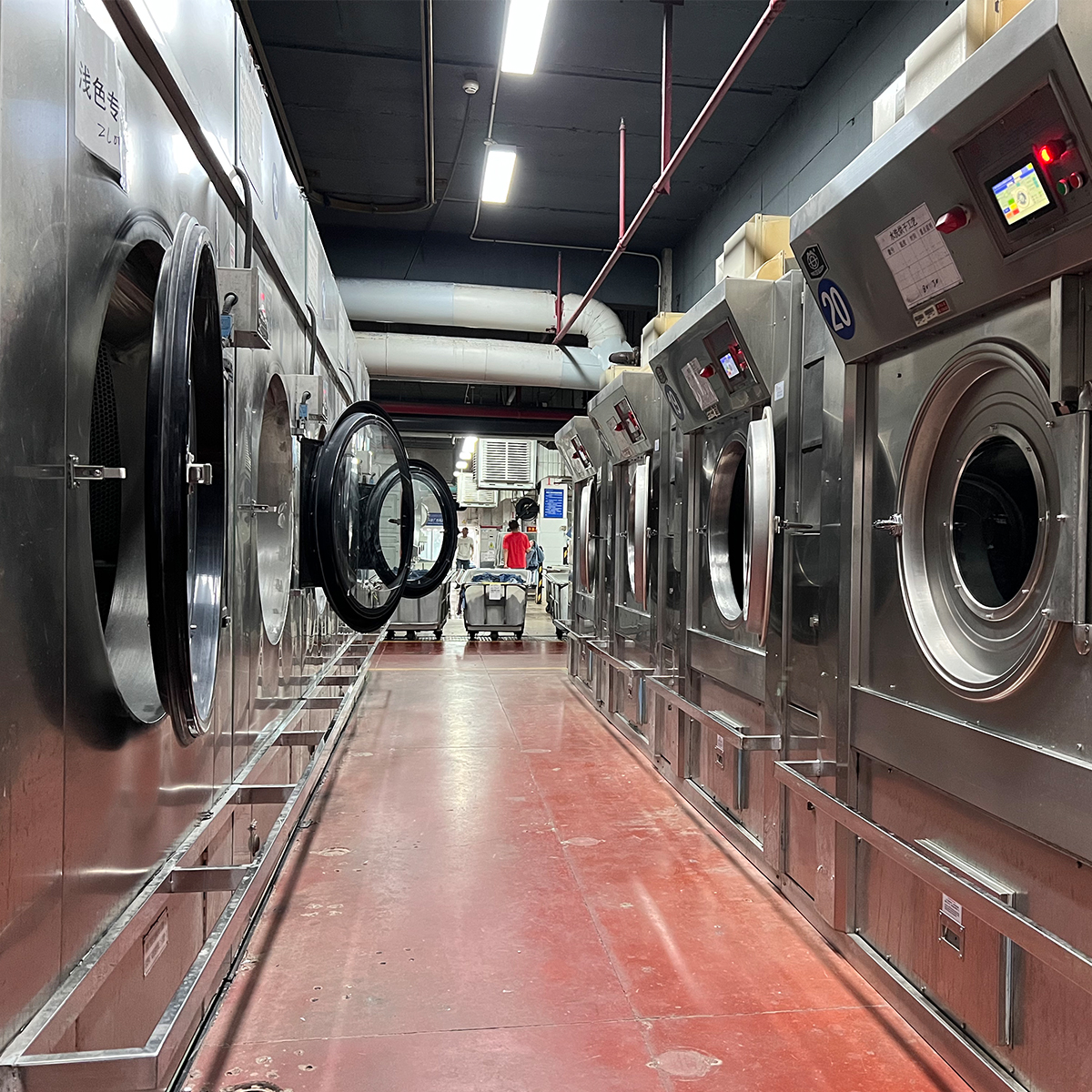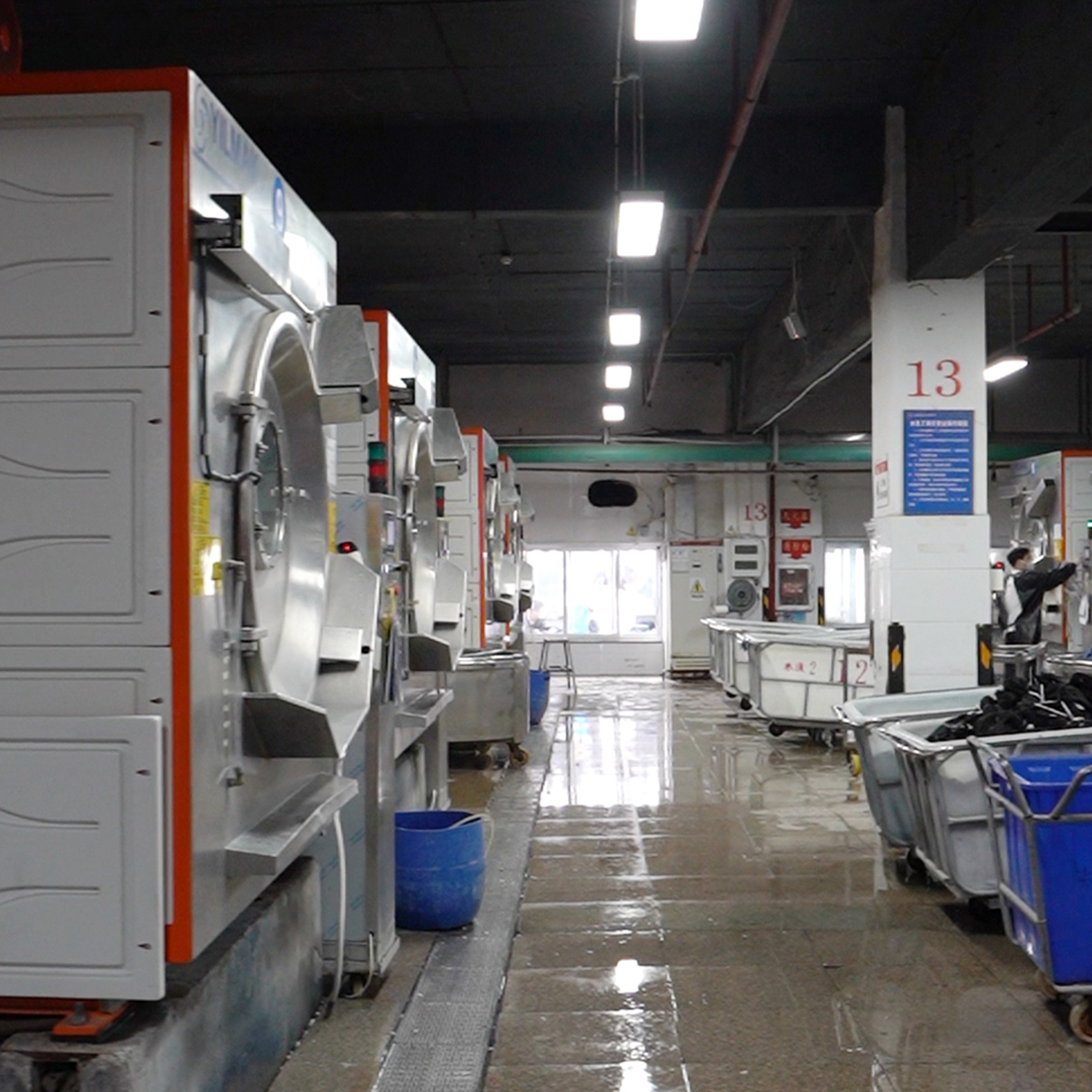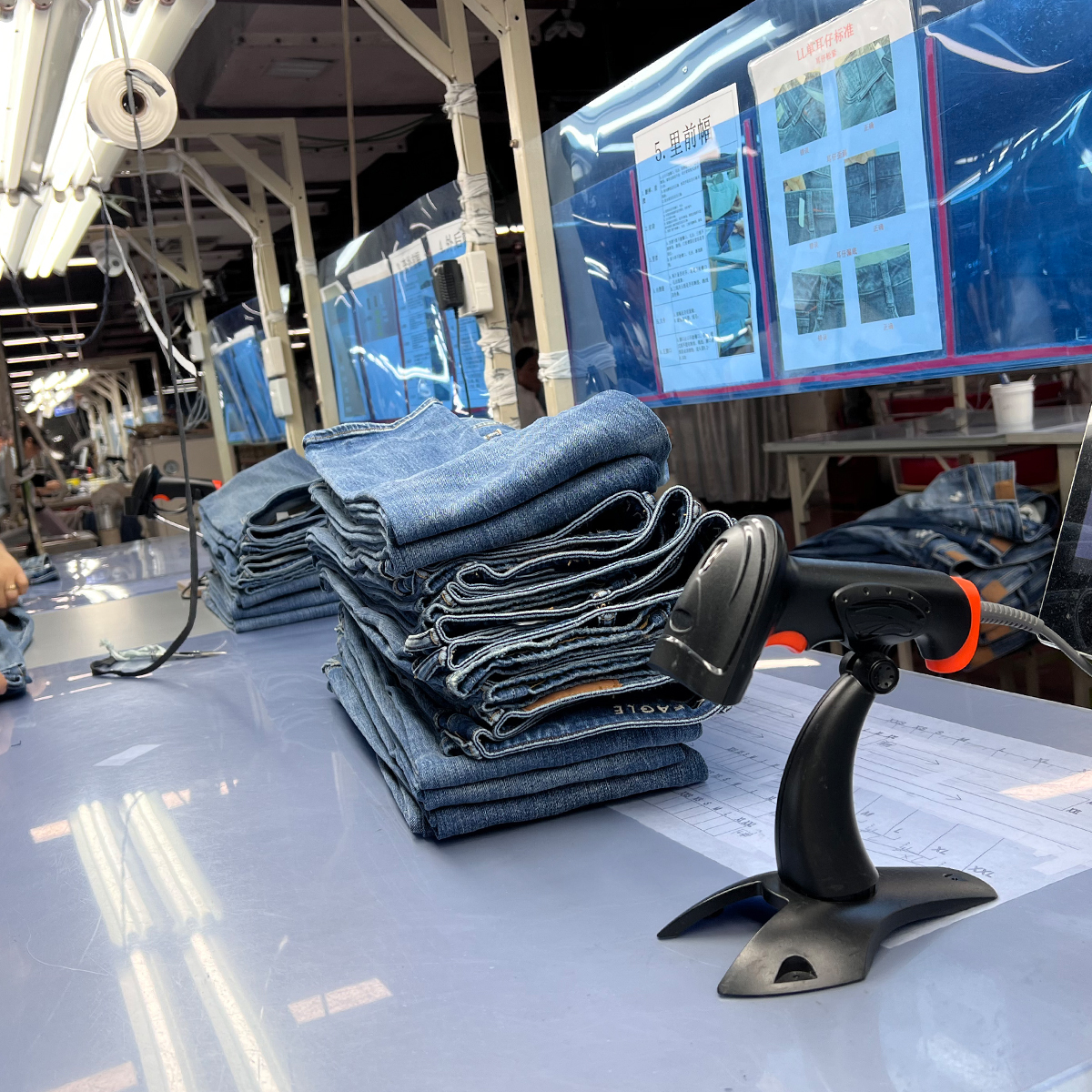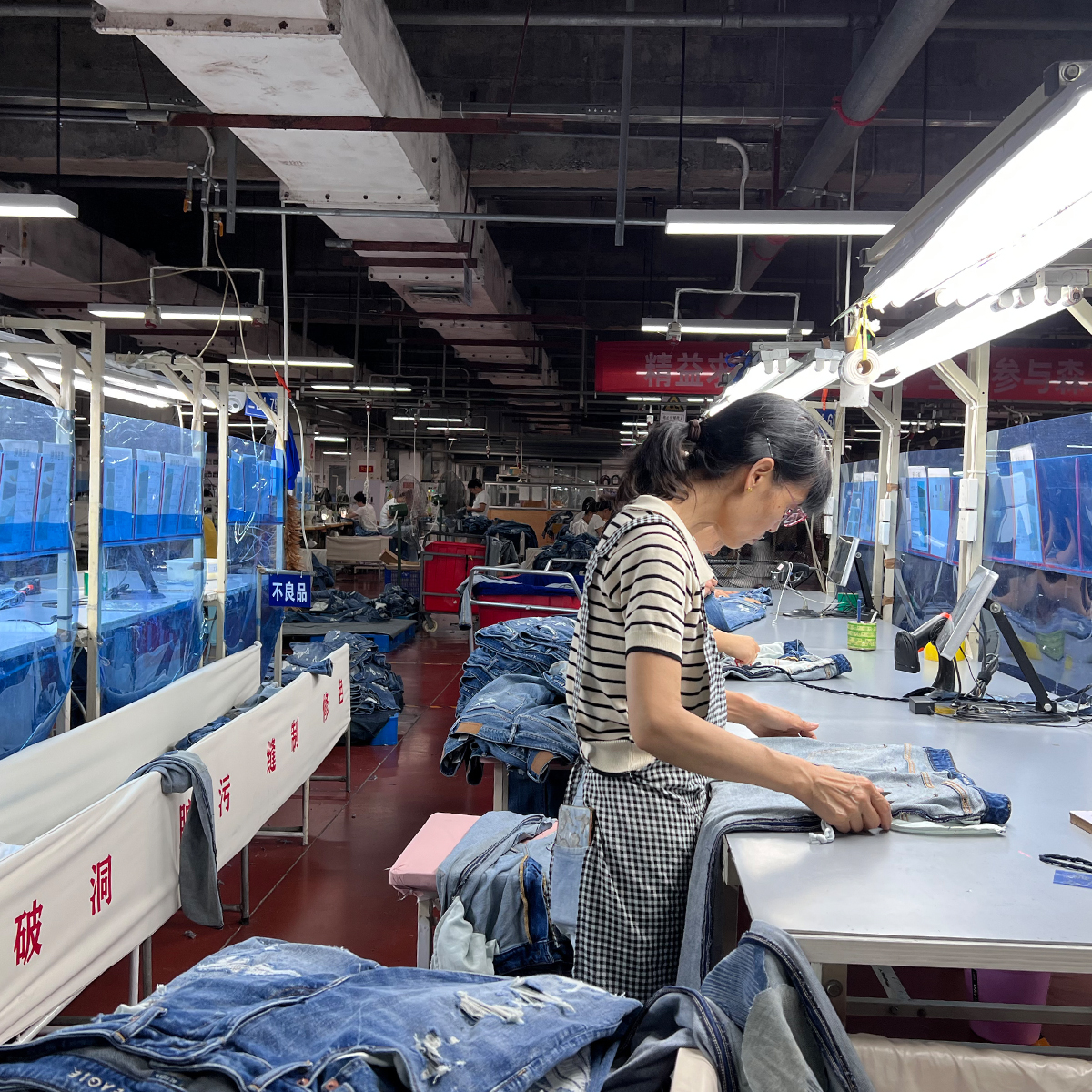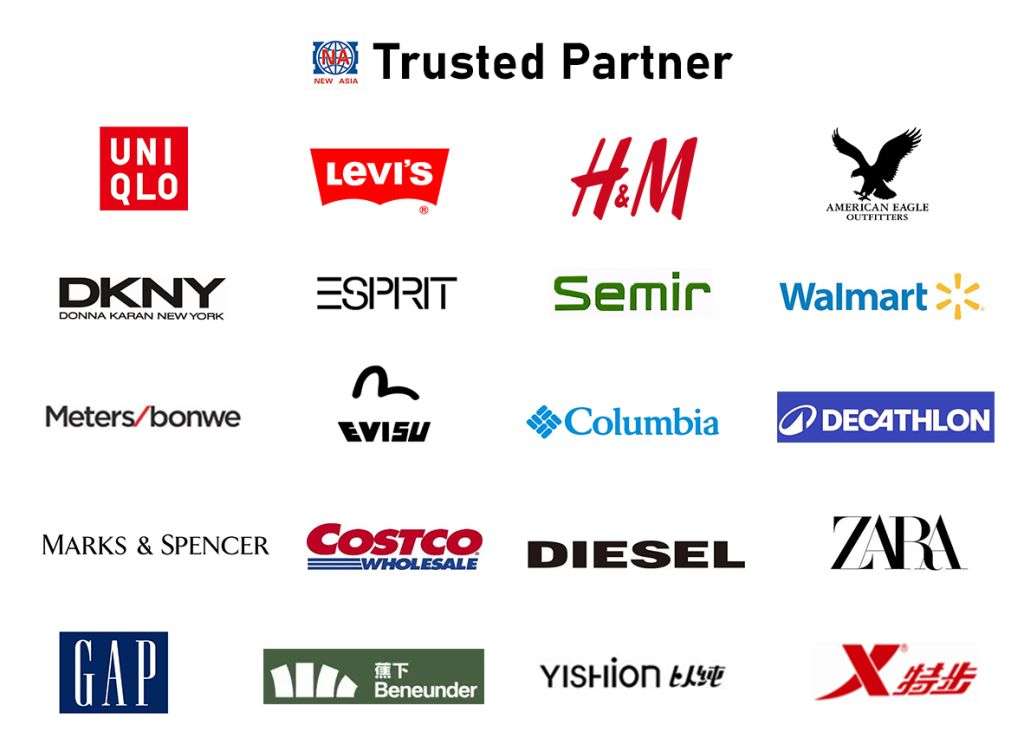With the global clothing industry on the rise, China has become the go-to destination for clothing manufacturers, especially for jeans. This guide will explore how to find reliable jeans manufacturers in China, helping businesses source high-quality denim products while ensuring cost-effectiveness and efficiency.
1. Understanding the Jeans Manufacturing Landscape in China
China is renowned for its robust manufacturing capabilities, particularly in the textile and apparel sector. The country offers a vast network of suppliers and manufacturers, enabling businesses worldwide to find the right partners for their jeans production needs. From large-scale factories to smaller workshops, the variety of manufacturers available can cater to different business requirements, whether for bulk production or customized designs.
2. Key Factors to Consider When Choosing a Manufacturer
Quality Assurance
When selecting a jeans manufacturer in China, quality should be a top priority. Look for manufacturers that implement strict quality control measures throughout their production processes. It’s vital to request samples to evaluate the fabric quality, stitching, and overall craftsmanship.
Production Capacity
Understanding a manufacturer’s production capacity is crucial for meeting your business demands. Some manufacturers specialize in fast fashion, while others may focus on high-end markets. Ensure the manufacturer can handle your order sizes and timelines effectively.
Technical Expertise
Jeans production requires a blend of craftsmanship and technical expertise. Manufacturers should have advanced machinery and skilled workers to produce a variety of styles, fits, and washes. Inquire about their experience with different denim types and production methods, including sustainable options.
3. Researching Potential Manufacturers
The first step in finding a reliable jeans manufacturer is thorough research. Utilize industry-specific platforms and directories such as Alibaba, GlobalSources, and Made-in-China to explore potential manufacturers. Reading reviews and ratings from previous clients provides insight into a manufacturer’s reliability and quality.
Trade Shows and Exhibitions
Attending trade shows or textile exhibitions in China can provide opportunities to meet manufacturers face-to-face. Events like the Canton Fair showcase various apparel manufacturers, allowing you to assess their products directly and discuss your requirements.
4. Engaging with Manufacturers
Once you shortlist potential manufacturers, the engagement phase begins. Initial communication will set the tone for your business relationship. Be clear about your needs, including product specifications, order sizes, and pricing expectations.
Requesting Quotes
When you communicate with manufacturers, request quotes for your desired products. Compare these quotes carefully, keeping in mind that the cheapest option may not always be the best. Consider production timelines, shipping costs, and additional fees that may arise.
Verification and Visits
If feasible, consider visiting the manufacturer’s facility. Observing the production process firsthand allows you to assess their operations, quality controls, and overall professionalism. If a visit isn’t possible, hiring a third-party inspection service can help ensure reliability.
5. Understanding Regulations and Compliance
It’s essential to understand the legal and compliance aspects of manufacturing in China. Ensure that your selected manufacturers adhere to international labor laws and environmental standards. Seek certifications such as ISO and OEKO-TEX that verify compliance with safety and quality standards.
Trade Agreements
Familiarize yourself with any trade agreements between your country and China that may affect tariffs or import fees on jeans. This understanding can significantly influence your production costs and profit margins.
6. Building a Long-Term Relationship
Once you have selected a manufacturer and begun production, the next step is fostering a strong business relationship. Maintaining open lines of communication will help resolve any issues that may arise during production. Regular check-ins create transparency and trust between both parties, ultimately benefiting the business.
Feedback and Improvements
Provide feedback on production quality and delivery times. Engagement fosters a partnership dynamic, encouraging the manufacturer to prioritize your orders and improve their processes based on your observations. Building a mutually beneficial relationship can lead to better pricing, priority production, and exclusive designs.
7. Embracing Sustainability in Denim Production
Given the growing importance of sustainability within the fashion industry, consider manufacturers that prioritize eco-friendly practices. This can include sustainable sourcing of materials, water-saving production methods, and waste reduction initiatives. Partnering with such manufacturers not only improves your brand image but also appeals to the environmentally conscious consumer market.
Certifications and Eco-Friendly Options
Look for manufacturers that hold relevant certifications for sustainable practices, like GOTS (Global Organic Textile Standard) or bluesign®. More consumers today are inclined to support brands that exhibit environmental responsibility, making this an important factor for modern businesses.
8. The Future of Jeans Manufacturing in China
The denim industry in China is continually evolving, adapting to trends including customization and smart textiles. The future may see more demand for personalized jeans, integrating technology for fit adjustments and challenging traditional production methods.
As innovation continues to thrive within the jeans manufacturing sector, brands should remain agile, ready to adapt to market changes and consumer preferences. Engaging with progressive manufacturers will position a brand favorably in the competitive landscape.
Final Thoughts
Finding a reliable jeans manufacturer in China requires due diligence, research, and proving a quality-first approach. By understanding the landscape, communicating effectively, adhering to regulations, and focusing on sustainable practices, businesses can successfully navigate the complexities of sourcing denim products while building a meaningful partnership with their chosen manufacturer.
Utilizing the insights and strategies discussed in this guide will help your brand thrive in the dynamic world of jeans production, ensuring that you find a manufacturer capable of delivering quality products tailored to your needs.



